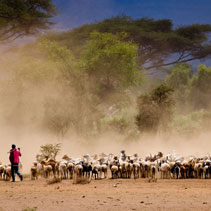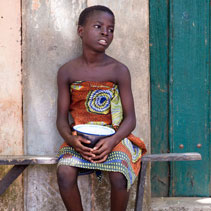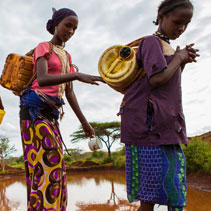This programme focuses on dryland ecologies. Dryland regions make up over 60% of Africa’s landmass. Despite this, decision-makers have generally neglected the development of these regions, partly because they are often considered to have little potential for development or agriculture. Those living in these areas are particularly vulnerable to a range of health threats, including vector-borne diseses.
Land-use patterns, water resource-management and other social and ecological features of dryland areas and the communities that inhabit them create a range of vulnerabilities to diseases such as malaria, schistosomiasis, Rift Valley fever and African trypanosomiasis. Changes in the climate and other aspects of the environment are likely to influence the distribution and impact of vector-borne diseases.
Dryland populations (including small-scale farmers, pastoralists and fishermen) face a number of challenges. Often these areas have poor infrastructure and are not adequately served by roads or telecommunications. They may be further affected by poverty, natural disasters and a range of micro and macro-economic issues. Health and educational services are often sub-standard or very difficult to access.
Short-term weather variability already affects food production and security in dryland areas. Communities have developed strategies and resources for coping with some of the issues they have faced in the past. However, long-term climate change and other environmental changes are likely to pose new problems and threats that have not yet been encountered.
Food security, access to clean water, and a range of other threats associated with climate change could potentially combine with alterations in the spread and impact of vector-borne diseases in a way that creates significant risk. This programme will help to develop the knowledge, capacities, skills and tools that can help contribute to improved community resilience.


